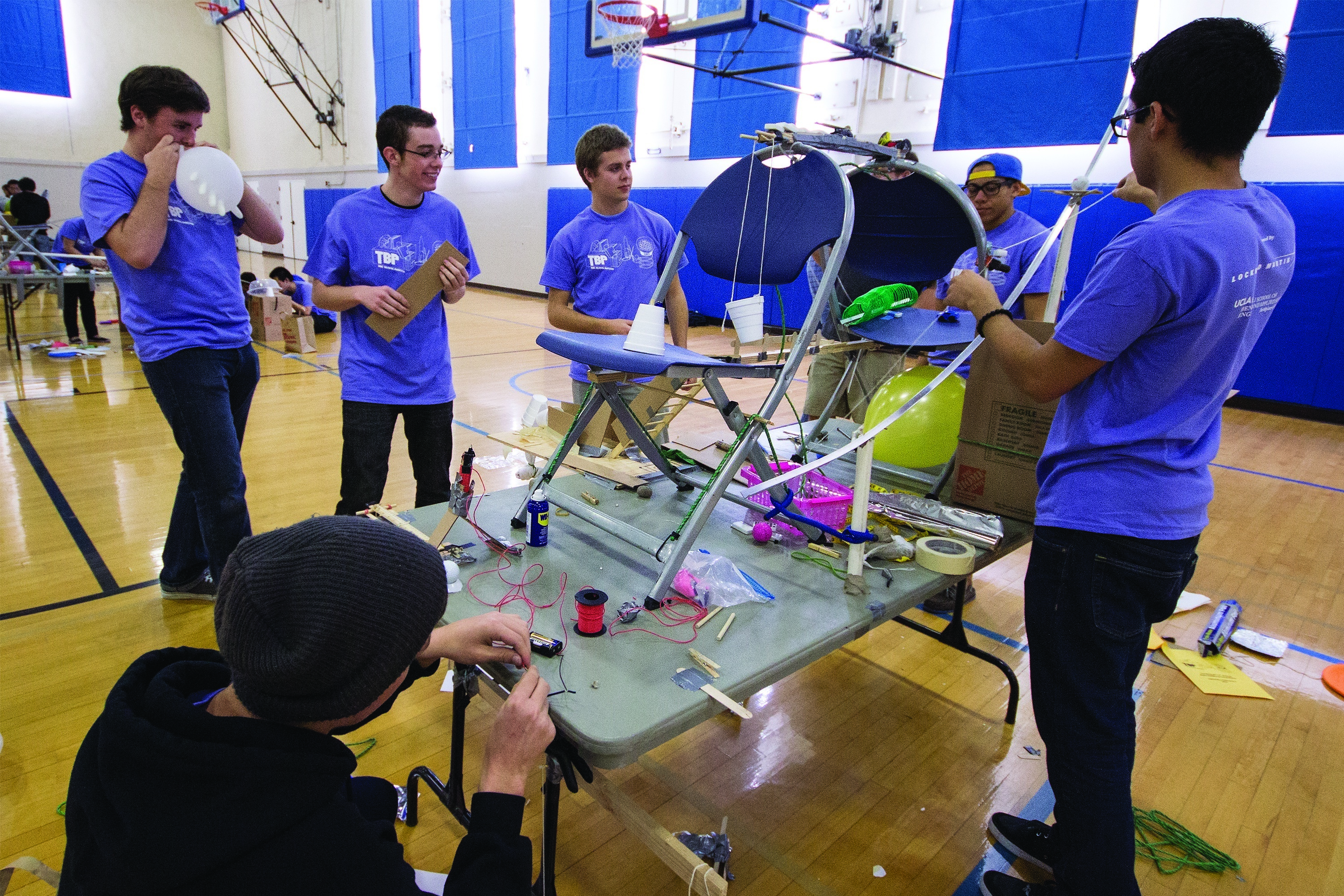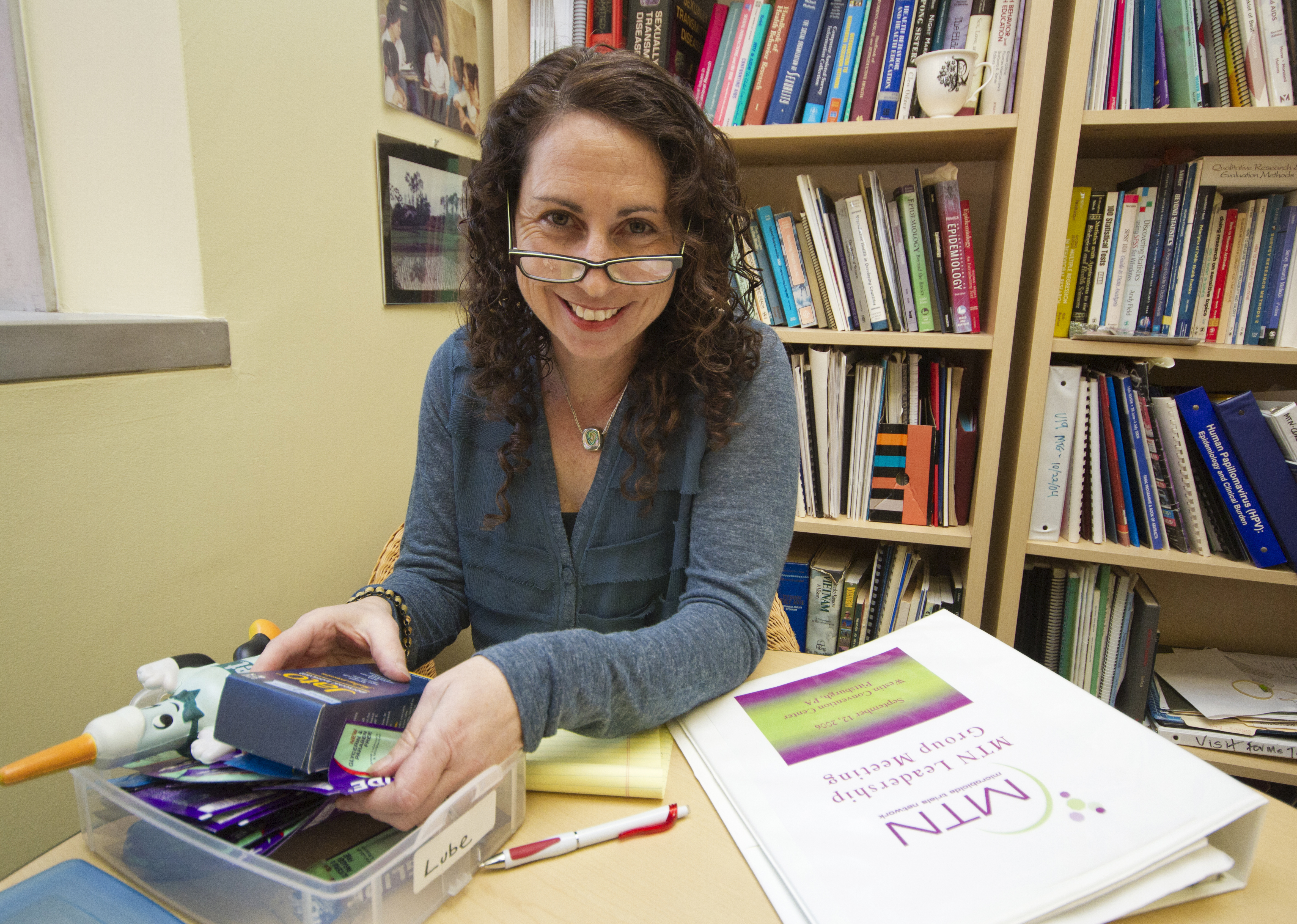Students will now be prohibited from unlocking their cellphones without the carrier’s permission, under a recent change to a federal act. Unlocking a cellphone, or allowing it to function under other networks, without the carrier’s permission, was legal up until last month, under an exemption to the Digital Millennium Copyright Act. Read more...
News, Science & Health
|
February 5, 12:37 am
Law bans unlocking cellphones
News, Science & Health
|
February 5, 12:30 am
UCLA Health System Ethics Center aids professionals, public on medical ethics
A transplant surgeon was faced with a dilemma – he didn’t know if he should perform a liver transplant on a patient with a history of substance abuse. Read more...
News, Science & Health
|
February 4, 1:09 am
Rube Goldberg competition thrives on complexity
The original credit for the photo accompanying this article contained an error. See the bottom of the article for additional information. With 20 seconds left on the clock, a system of pulleys, balloons, ramps and dominos failed its final test run. Read more...
Photo: UCLA students participate in a Rube Goldberg competition Saturday, making complicated machines to complete simple tasks.
News, Science & Health
|
February 1, 12:45 am
Ashe About Your Health: Dealing with stress
I’m having a particularly stressful week. So I thought I’d take the opportunity to focus on one of the top three reasons people come to see a doctor: stress. If you’re reading this article, then you know stress is simply a part of reality. Read more...
Campus, News, Science & Health
|
January 31, 12:00 am
Club matches pre-med students into one-on-one mentorships
Running from the Hill to the middle of South Campus, a student was late for chemistry class. Read more...
Campus, News, Science & Health
|
January 30, 12:42 am
The Hill’s first Sustainival event encourages green living
Students at Sustainival, the Hill’s sustainability fair, use puffy paint to decorate burlap bags. The event, which attracted about 100 students, was a kick-off to the “Do it in the Dark” campaign, where Hill residents pledge to be more sustainable by turning off their lights when they can and unplugging unused chargers. Read more...
Photo: Students at Sustainival, the Hill’s sustainability fair, use puffy paint to decorate burlap bags. The event, which attracted about 100 students, was a kick-off to the “Do it in the Dark” campaign, where Hill residents pledge to be more sustainable by turning off their lights when they can and unplugging unused chargers.
News, Science & Health
|
January 29, 2:00 am
UCLA professor uses technology to study HIV
Pamela Gorbach, who specializes in behavioral epidemiology, has travelled to nine countries to research the ways in which human actions influence bodily infection and to improve treatment for infections. Read more...
Photo: Pamina Gorbach, a researcher and professor in the department of epidemiology at the Fielding School of Public Health, performs HIV/AIDS research which has taken her to nine countries.



